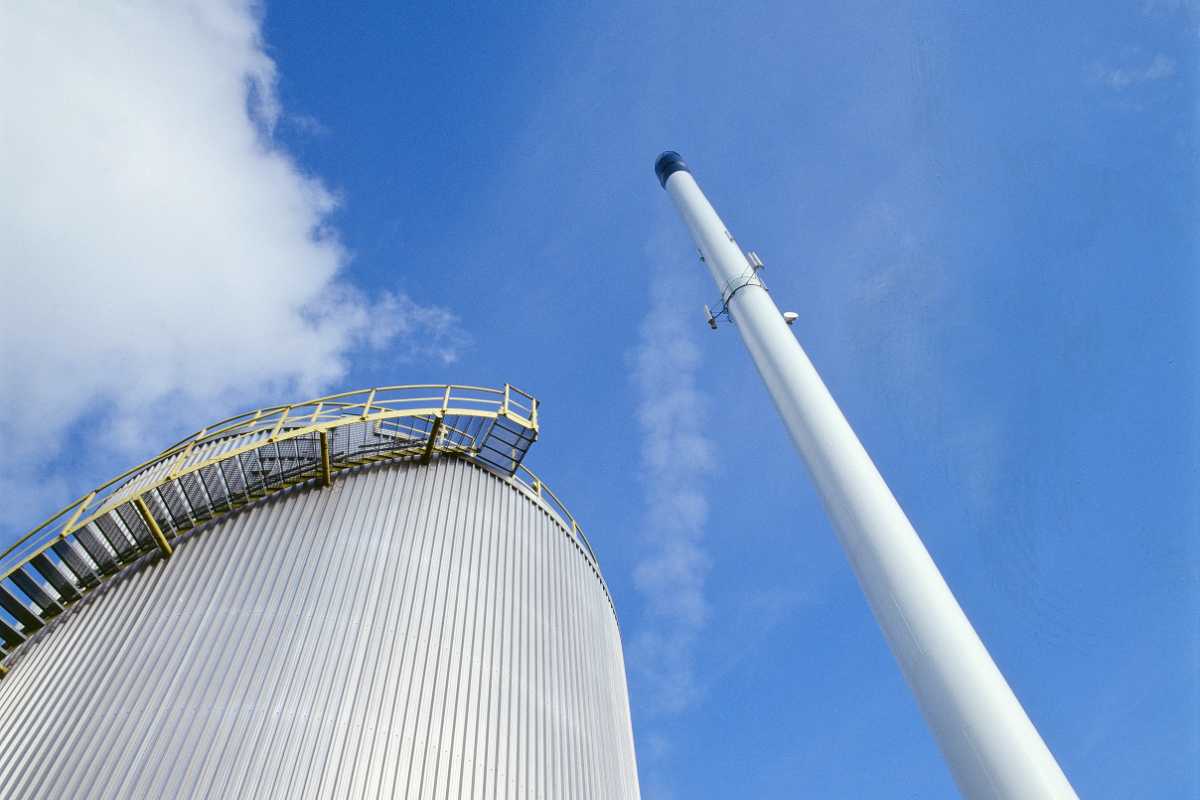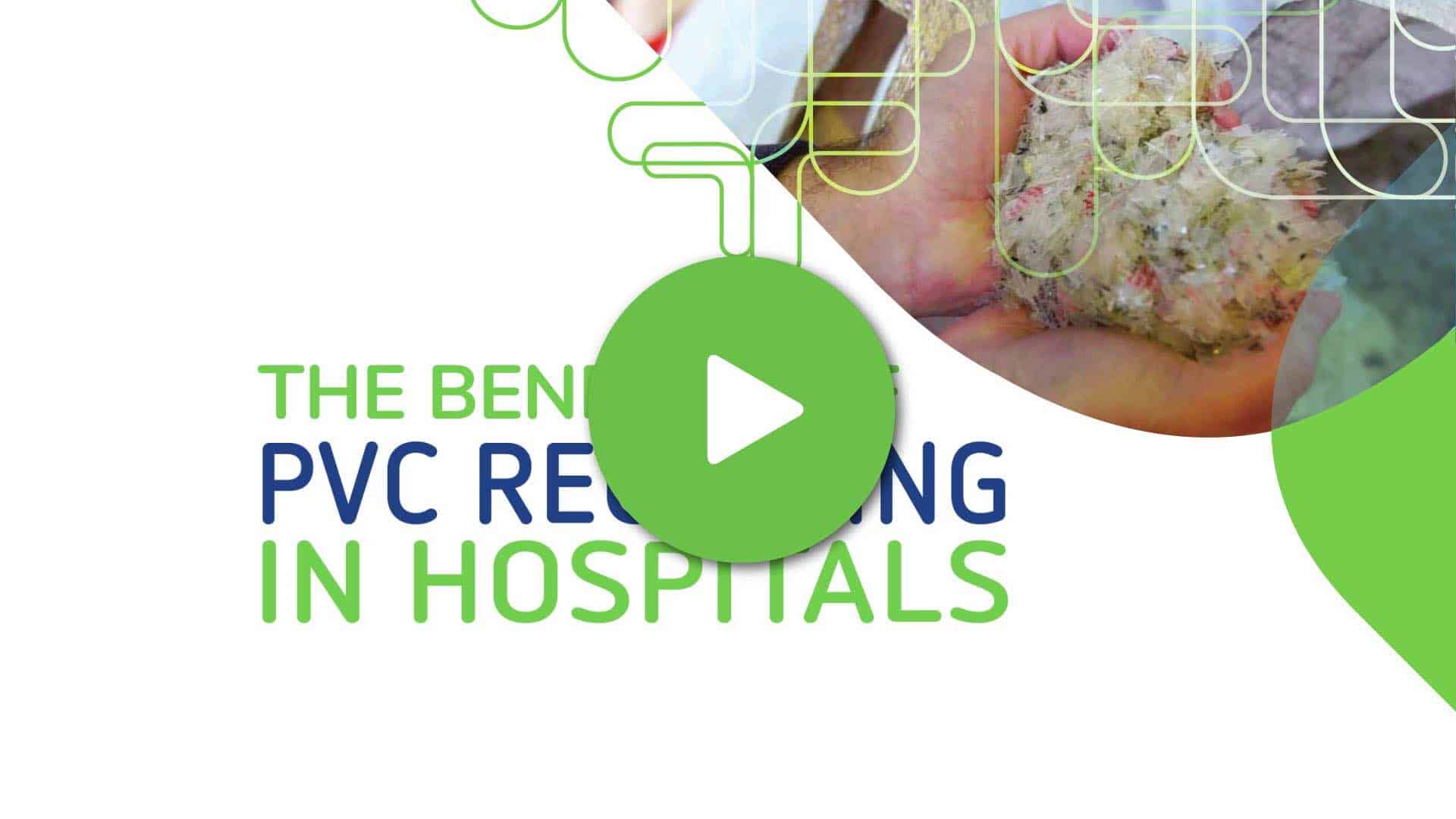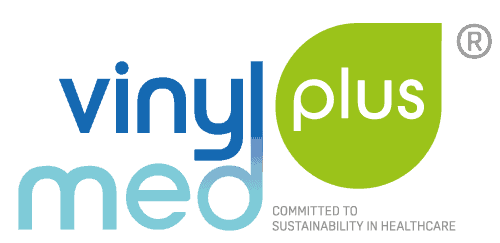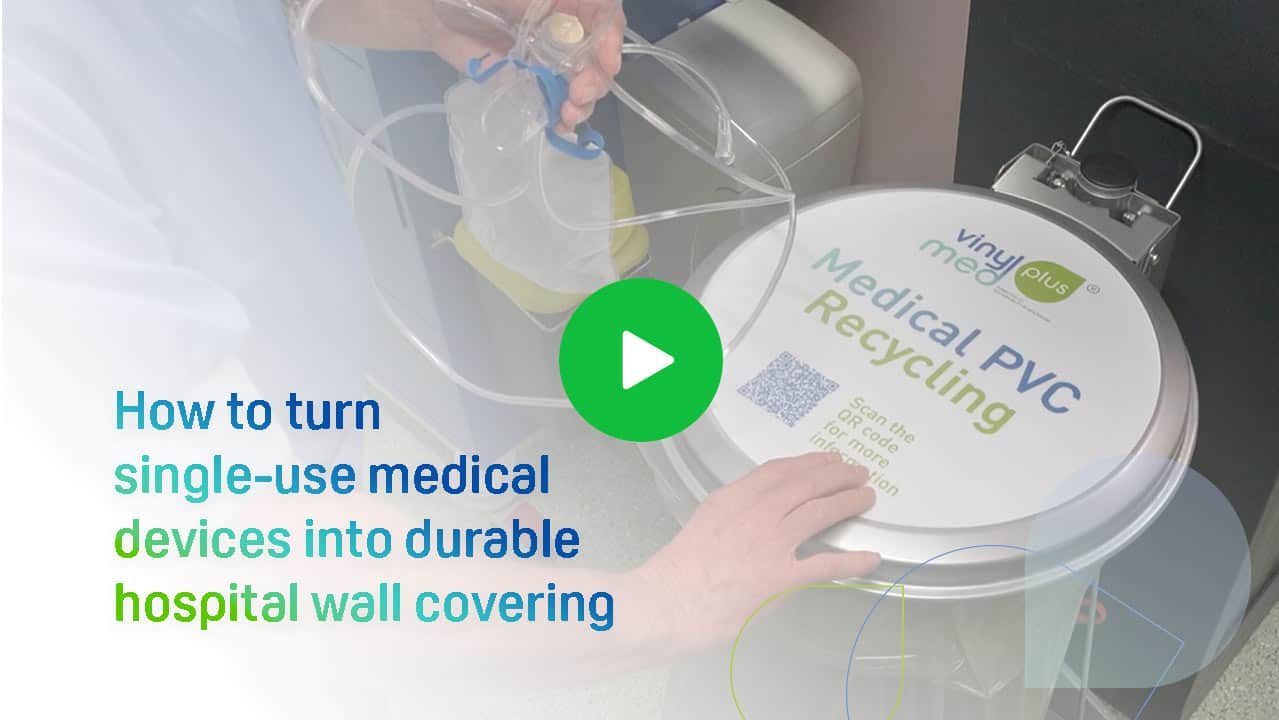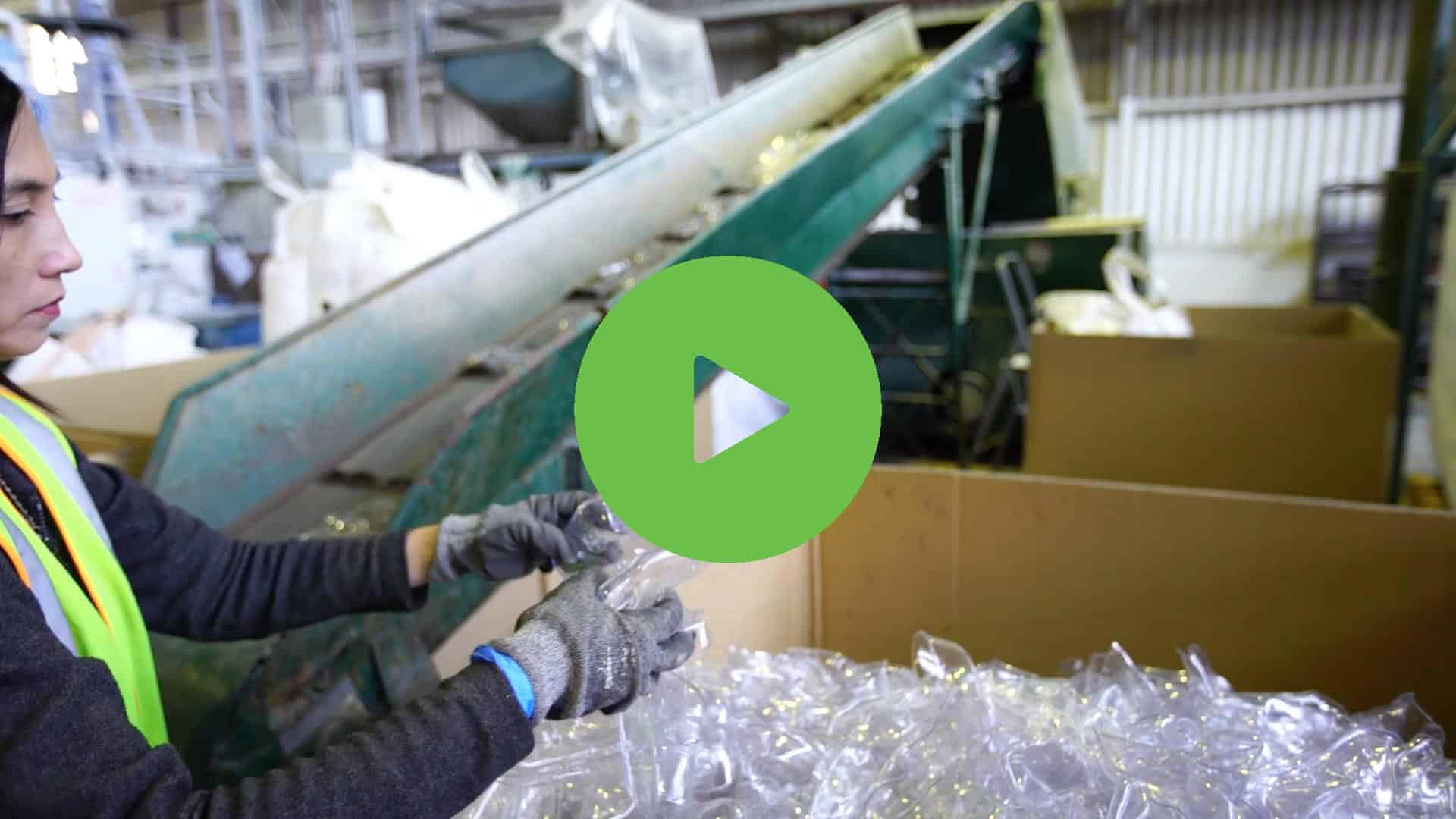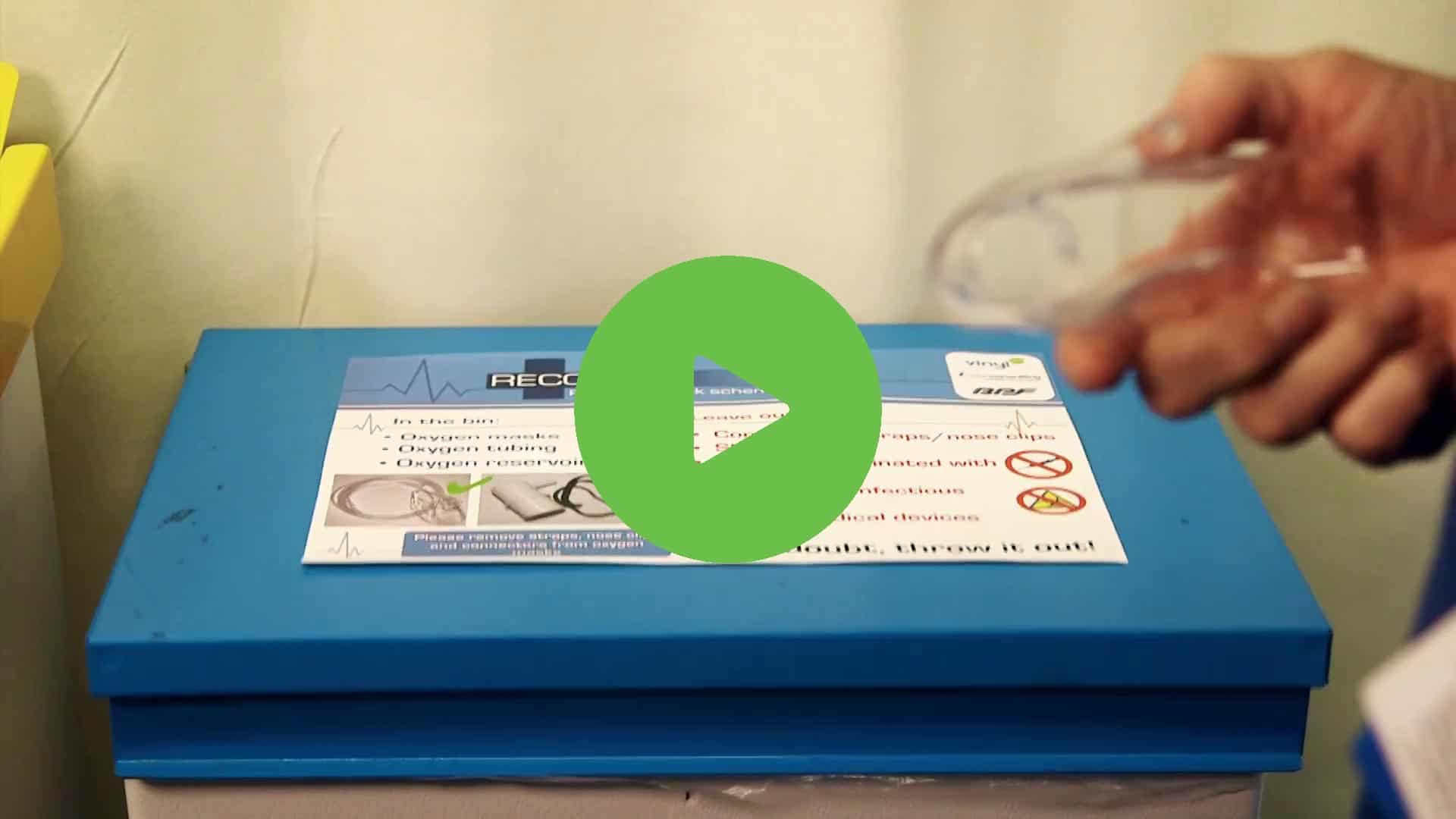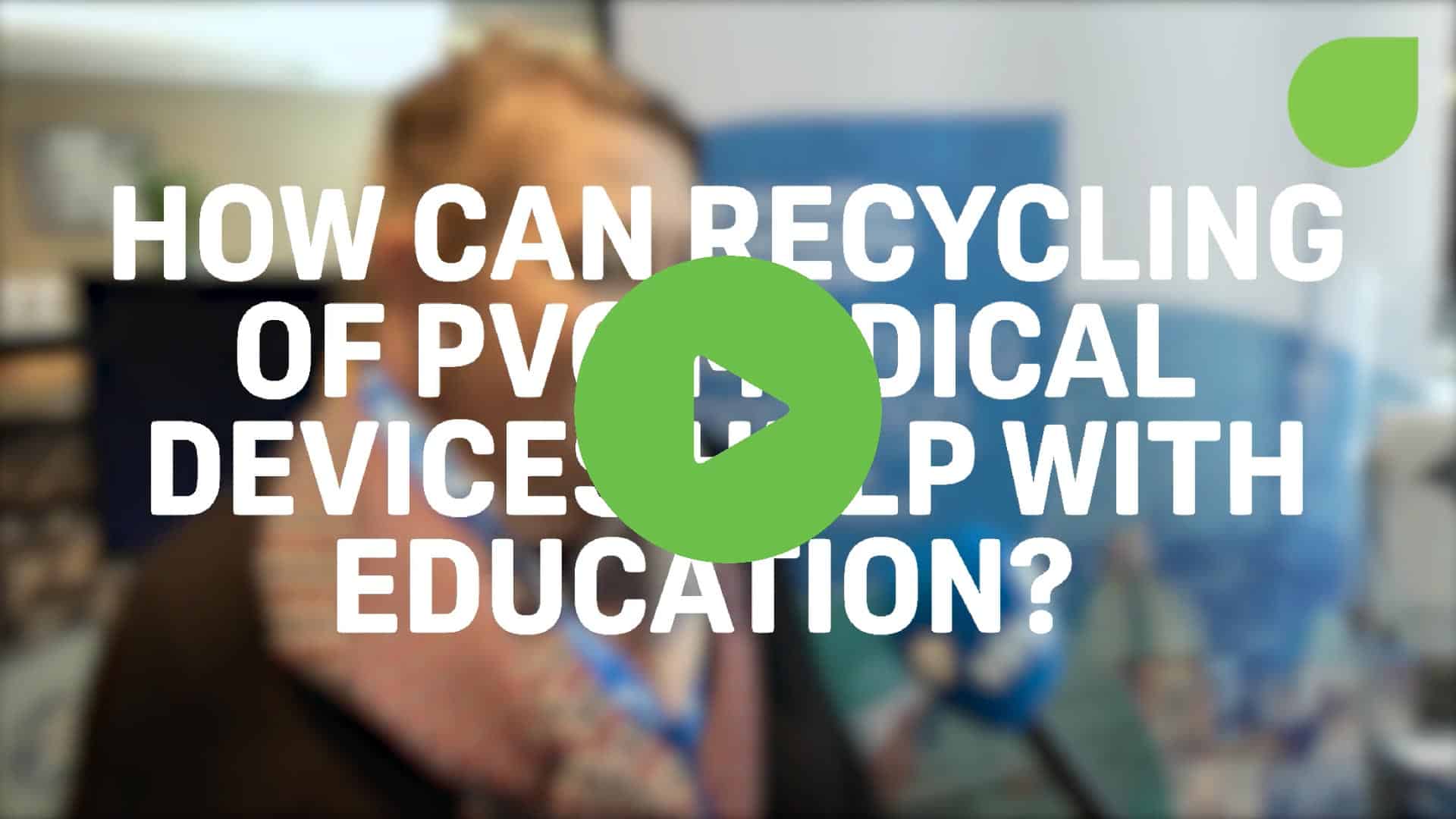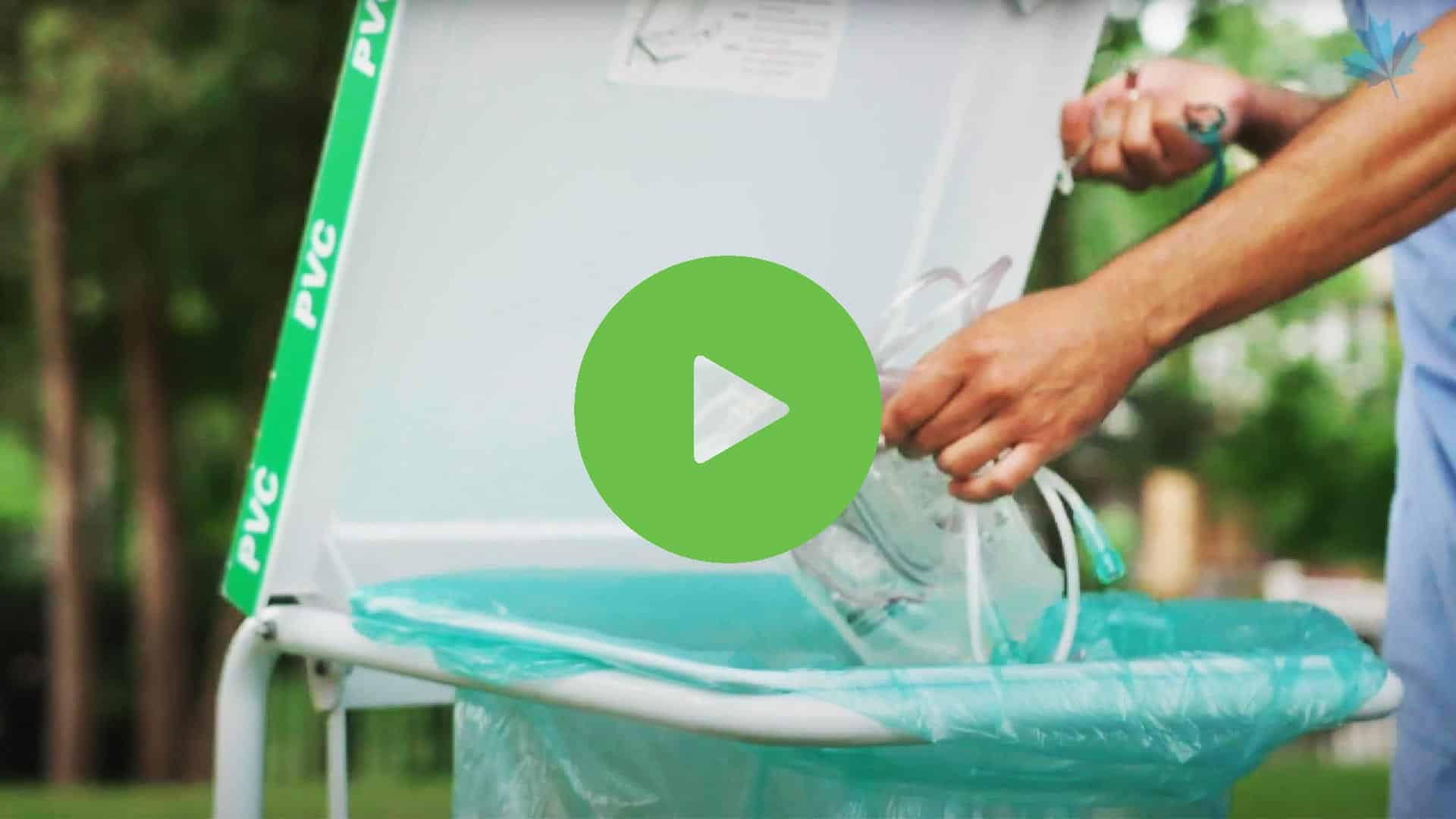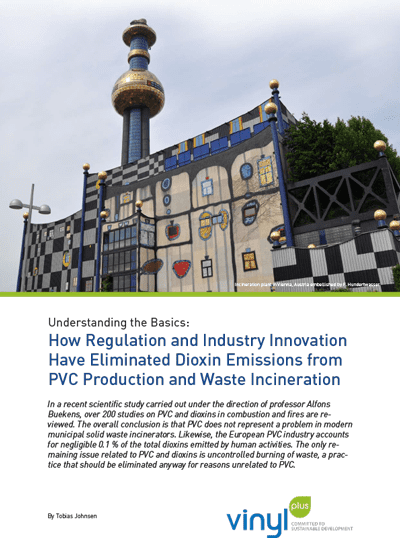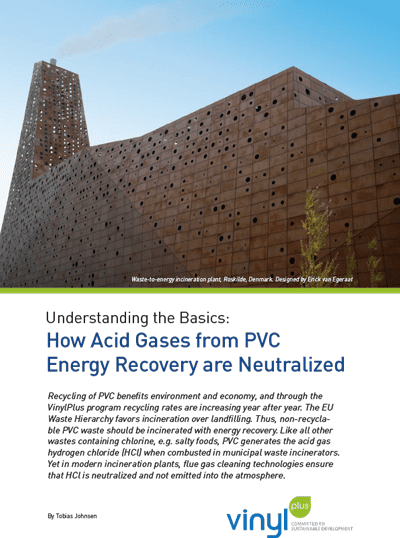The PVC industry is committed to sustainable development of the PVC value chain and an efficient use and management of PVC products through their entire lifecycle. Enormous progress has been made in collecting, recycling and recovering PVC-based products to ensure that valuable raw materials are conserved in an economically suitable way, and other component PVC waste is managed appropriately.
Collection and recycling of PVC is also happening in the healthcare sector. A growing number of hospitals in Belgium and other countries collect and recycle non-infectious PVC-based medical devices. The collected waste is turned into useful products.
PVC recycling in hospitals
Recycling PVC medical applications is a good idea. Medical grade PVC is of high quality and can easily be turned into new useful products. Also, hospitals save money by diverting waste from expensive treatment processes for clinical waste and at the same time contribute to circular economy, reduce carbon emissions and help save energy. It has been calculated that a 300 bed hospital could easily recycle around 2.5 tonnes of PVC medical devices each year. These advantages have led to implementation of recycling programmes for non-infectious PVC-based medical devices in several countries.
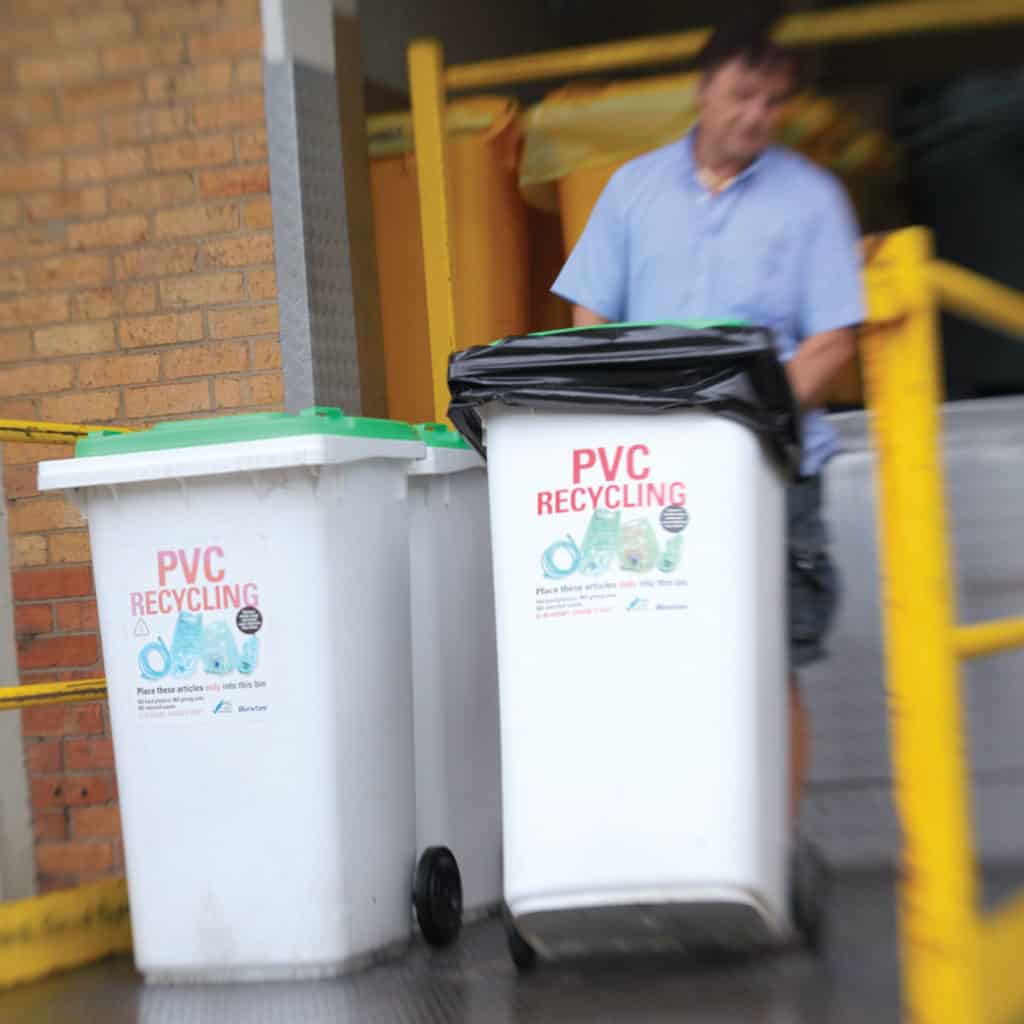
VinylPlus® Med accelerates sustainability in European healthcare
In 2021 the collaborative partnership VinylPlus® Med was launched in Europe, which aims to accelerate sustainability in healthcare through the recycling of discarded PVC medical devices across the continent. This initiative brings together hospitals, waste managers, recyclers and the PVC industry in combatting the wastage of single-use PVC plastics in European healthcare. While plastic medical devices played an important role during the pandemic, the surge of single-use plastic devices in the prevention and control of Covid-19 in hospitals has clearly spotlighted the challenges of properly managing and discarding items after use.
Recycling lowers hospitals' environmental impacts and operational costs
Efficiently sorting and recycling the non-infectious plastic waste should significantly reduce the environmental impact and operational costs of participating European hospitals. Belgium has been chosen as the pilot project for the scheme, partnering with Renewi as the waste manager and Raff Plastics as the major recycler. All Belgian VinylPlus Med partners are located within a radius of 200 km from each other in order to minimise transport distances and mitigate carbon footprint.
Choose Pink converts used medical devices into hospital entry-ways
In 2024, PVCMed Alliance Partner Westlake Global Compounds launched the Choose Pink programme at Houston Methodist's outpatient centre. The programme collects empty saline bags, nasal cannulas, and oxygen masks. The rPVC will be reprocessed into items such as commercial matting for hospital entry-ways, dock edging, and protective equipment mats.
In a pilot, medical device manufacturer Baxter and Northwestern Medicine successfully diverted six tonnes of PVC IV bags from landfill. The pilot is now being expanded to increase scalability.
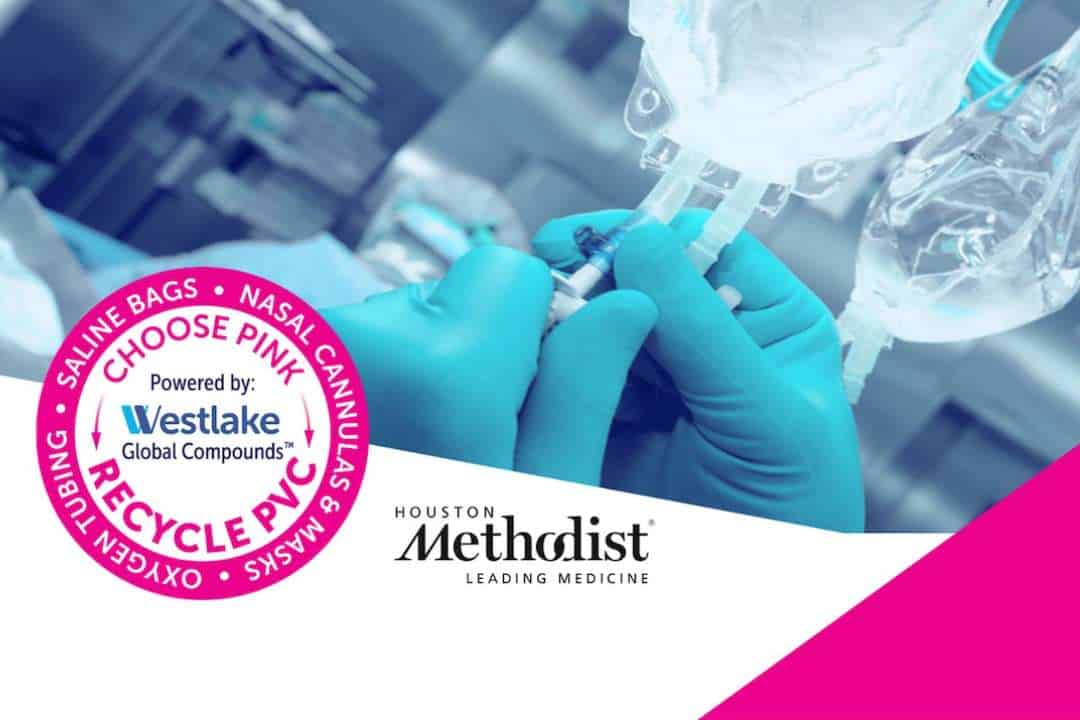
+250 Australian and New Zealand hospitals recycle PVC medical products
Today, more than 250 hospitals in Australia and New Zealand recycle non-infectious PVC-based IV bags, face masks and oxygen tubing. Every month, +20 tonnes of PVC waste is collected and recycled. The implementation of PVC recycling in hospitals is mainly driven by staff, who already recycle plastic at home and therefore find it a natural progression to do it at their workplace. Due to the success of the programme, PVC recycling is now part of the nursing training in Australia. Read more success stories.RecoMed take-back scheme for PVC medical devices
The RecoMed take-back scheme for disposable non-infectious PVC medical devices have demonstrated safe collection and recycle PVC oxygen masks, oxygen tubing and IV bags. So far, the collected and recycled PVC in the UK equates more than 700,000 oxygen masks. The programme is funded by VinylPlus®.
Sustainability awards
The RecoMed scheme has won recognition from several organisations within the healthcare and waste management sectors. Awards include the Barema & AAGBI Environmental Award, the National Recycling Award for waste prevention and the CIWM Sustainability and Resources Award for best recycling project.
IV bags are turned into school shoes in South Africa
In South Africa, a recycling project is currently underway, which is a model example of how an immediate challenge regarding plastic and waste management can actually contribute to sustainable development. Here, a partnership of hospitals, schools, municipal authorities, non-governmental organisations and the plastics industry has developed a groundbreaking program in which used medical equipment in hospitals is revitalised in the form of footwear for school children.
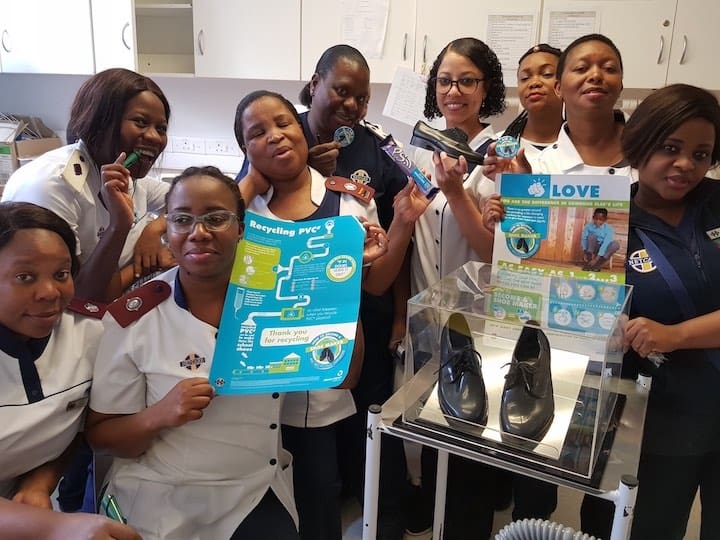
Medical plastic waste paves the way for schooling
About 5 million children in South Africa live in deep poverty. Even basic necessities such as shoes are in short supply, which means that children cannot attend school, as school uniforms are required. The programme's mission is to ensure that no children in South Africa should be absent from school due to a lack of footwear. To fulfill that mission, PVC IV bags are recycled into school shoes. Only 20 bags are needed per pair. Because the shoes are made entirely of PVC, they are 100% recyclable. When the shoes get too small for the kids, they hand them over for recycling and then get a new pair of appropriate size.
Canada recycles PVC medical devices
In September 2020 the Vinyl Institute of Canada and Environment and Climate Change Canada launched the PVC 123 pilot programme for PVC oxygen delivery devices, PVC oxygen tubing, PVC fluid bags/containers. The devices are collected at St. Joseph’s Unity Health Centre in Toronto and recycled by Norwich Plastics.
Energy recovery
Unlike most PVC applications, the majority of PVC medical devices are short term, single-use products. For safety reasons, non-recyclable medical PVC waste and other hospital waste streams are generally managed through incineration. This is a highly effective waste management method. When incinerated, the waste is combusted at high temperatures, thereby destroying contaminants and lowering the waste volume dramatically. Typically, the thermal energy can be used to generate electricity and in some instances district heating. Incineration is thus also known as “waste-to-energy.”
Hospital waste incineration has been greatly improved
Hospital waste management processes have been improved over the last decades to make incineration sustainable and efficient. In addition, recent experiences have shown that recycling of medical waste has the potential to be successfully implemented in healthcare settings like hospitals, therefore contributing to smart use of resources and improved cost-efficiency.
Waste substances from PVC incineration are appropriately managed
Concerns have been raised about the potential emission of waste substances – acid gases in form of HCl and dioxins and furans – from PVC incineration. The production of waste substances depends on incineration conditions. In modern, well-run incinerators, these substances are appropriately managed on the basis of the strict procedures and standards set up under the EU legislation and thus not emitted into the atmosphere.
